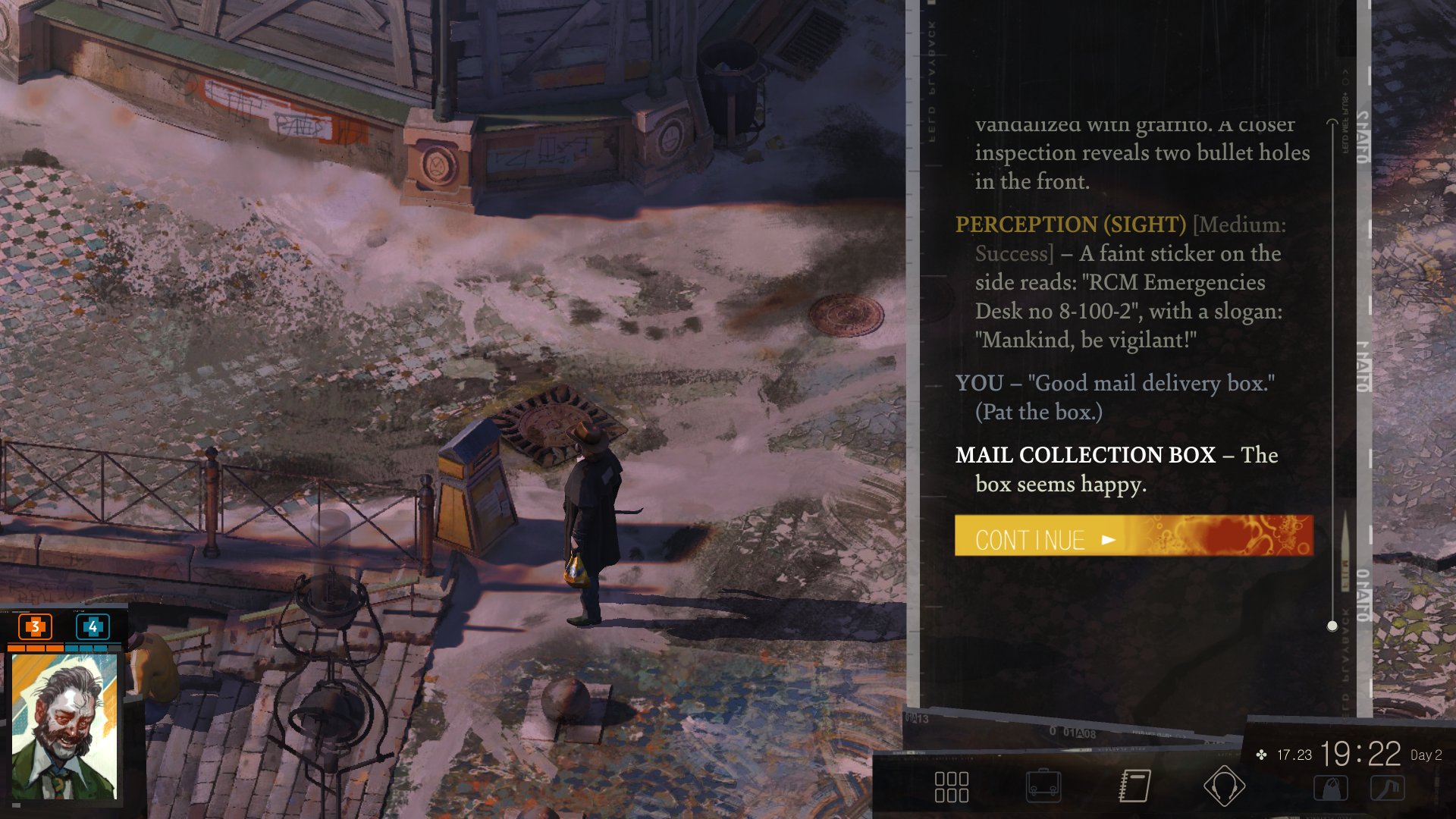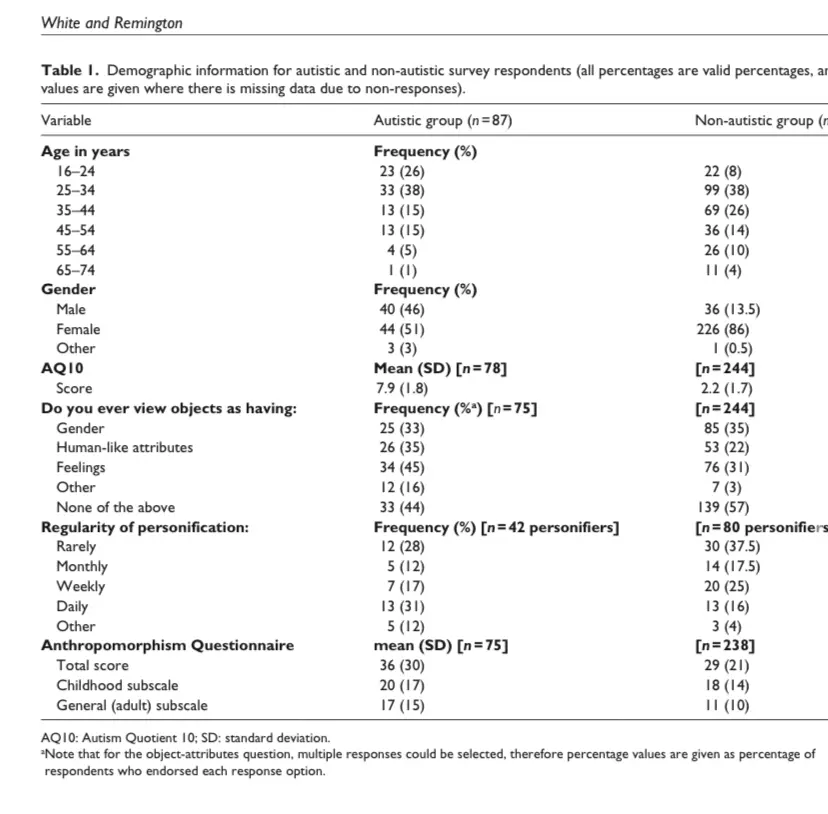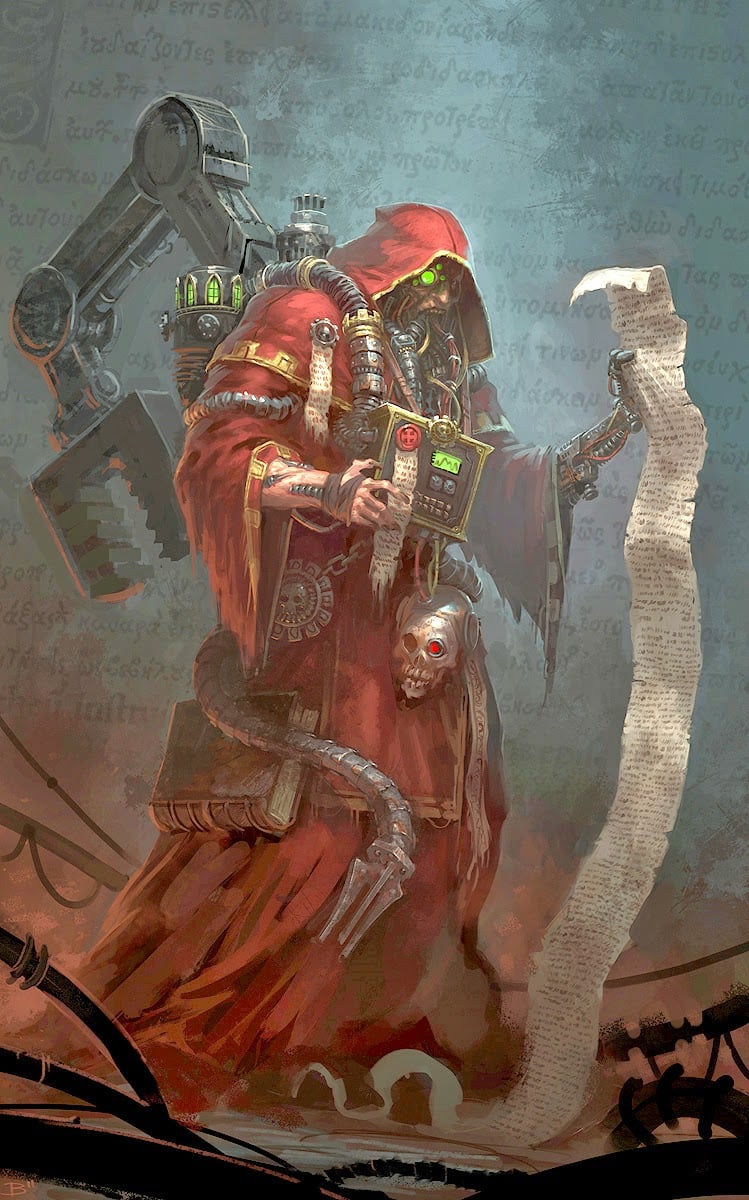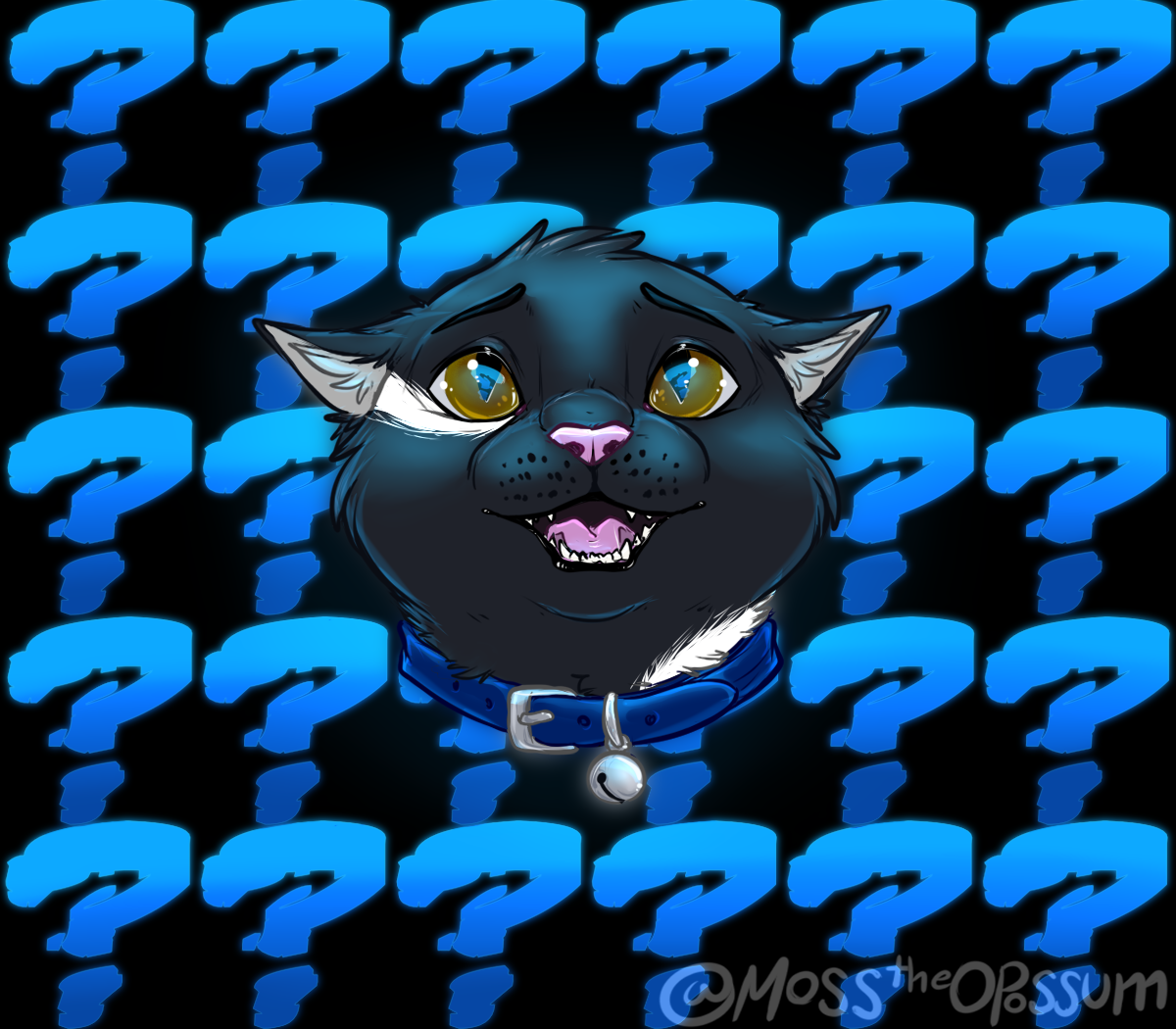Clickbait for autistic people
Anyone got a link to the paper? I kinda want to read it
thanks, the paper won’t be sad anymore!
I object.
Well now I’ve gone and personified you. Hallo, object!
I object.
I hear sci hub is a pretty cool website that lets you find a paper by its doi number
The DOI number is nowhere in this post so 🤷
I hear there’s another neat website called google that lets you find the doi of a paper by its title
Wait, other people don’t do that? Well, that explains a lot… Since I was a kid, I never understood how people treated their stuff so badly and throw stuff away without a second thought. I take care of my stuff for as long as I can, and almost never throw anything away. They’re like companions who walk with me in my life, and I’m never giving up on an old friend.
I’m not autistic and I feel the same way. It makes me sad to throw something away if it’s still got some use in it.
I don’t think that’s exactly the same situation though. Your comment reads as utilitarian, is that your reasoning for it? The object personification lends to an association of empathy for the object itself. Meaning that maybe the object is a human too and acts as we do
No it’s definitely empathy. I feel bad for the object if it’s been discarded before it’s time (and even when it is time sometimes if it’s something I’ve had for a while)
I apologize to my things when I accidentally bang them against something.
Sometimes objects im using have like, a personality and desire? Like they won’t want to get thrown out or there’s some kind of relationship between two forks.
Its kind of subconscious - I’m only somewhat aware of it. Its weird.
Also when in recalling things Ive learned recently I’ll sometimes recall a place I’ve been to as well. This happens most frequently with code for some reason. Programs I’ve written or functions will be strongly tied to places in some way? I don’t get it.
Thats probably just an accidental association/linking by your brain. When we learn new things our brain creates neural pathways and these become ‘memory’. If there is something that you learn and at the same time it happened to be when you moved to a new house, were on holiday at a different place or perhaps when you met a new person, your brain may go 'you learned this new thing and that place/person/smell/emotion was also there so i will ‘save this’ together as part of the same memory.
Its like playing a game from your childhood reminding you of the music you were listening to at the time you played it, or a skill you learned reminding you of that awesome dinner you grandma cooked because she was staying with your family at the time.Also when there is strong emotion involved with a memory (excitement, sadness, anger, the first time you kissed someone, etc) then you brain says ‘this is very important’ and you remember a lot more detail, like the smell of someones perfume and the red car that was parked on the street.
Other people also do that
True. Only the frequency of occurrence that is different.
That’s part of why I love this song. Same vibes, to me.
This comment will be very sad if you don’t interact with it
Downvoting so comment is happy
The comment has a degradation kink.
When the comment experiences more sexual attraction than you do 🙃
I’m confused, but happy.
Goddammit you got me
🫂
When I was a kid, every letter and number seemed to have a gender to me.
- Male: a, c, d, e, g, h, j, l, m, n, o, p, x, z, 1, 2, 4, 5, 6, 9
- Female: b, f, i, k, q, r, s, t, u, v, w, y, 3, 7, 8
- NB: 0
T is male. M is female and dating Mr. N.
T is a strong, amazonian woman. t is a tomboy skater who likes competitive street boxing.
back in the olden times, straight lines were masculine and curved lines were feminine.
Same for me except my number genders are different. 1,3,5,6,9 are male and 2,4,7,8 are female. 0 is still nb. I’d have to really think about the letters since they are more nuanced. Numbers definitely have hard gender though.
It’s one of those things I didn’t really think hard about. It’s more like, just the “feeling” I got from them XD.
Not even sure what causes it tbh
That sounds like a very unusual form of synesthesia.
https://en.wikipedia.org/wiki/Synesthesia
One of the few, if only, mental “disorders” I wouldn’t mind having.
o uses he/they

You must now boot up Disco Elysium and go tell the mailbox that everything will be ok.
/kicks -1hp
As a child I would hide newspapers under the couch so my mommy wouldn’t use them in the fireplace.
Oh no the poor newspapers
My dad had to mow the lawn when I was away or heavily distracted because I’d cry about the dandelions and daisies being cut down lol
Still irks me to this day when I have to do it.
It’s the opposite for me. As a child, I had an irrational fear of dandelions. When my dad had to mown the lawn, I cheered from the window, as I could finally go outside again.
Given the climate collapse I figure we’ll both lead lives that will eventually lead us to Highlander-Dueling it out over the last dandelion and what to do with it
lemme guess, this paper is probably pay walled also?
God i love modern science, it’s so much fun.
Yes.
incredible, what a fucking shitpost this is.
? shitpost ?
the paper is almost definitely going to be sad given the fact that people can’t read it, since it’s behind a pay wall.
and just for the record in case you don’t know what a shitpost is, it’s often a half joking statement, not intended to make an incredibly serious point.
Don’t anthropomorphize computers, they hate that.
I hope i don’t make the paper sad by saying this but the numbers are kinda off. (Or i misunderstand)
The only real difference is for below age 24. Then its pretty much the same if not less prevalent for autists.
They point to some other factors about the types of questions that indicate that the differences are underestimated but evidently that didn’t translate in hard numbers.

I think you are misreading this. The age sections at the top are just a demographic breakdown of the two groups. Note rhat all the different percentages for age sum to 100. The results are just the bottom section of your screenshot (“anthromorphic questionnaire”). Does seem to be statistically significant.
The actual results are in the text. 56% personifiers among autists vs 33% among not autists, p<0.05. Self report is p=0.06.
I’m pretty sure the age and gender in that table is just showing the frequency of the ages in the sample, not a crosstab of age or gender with personification/anthropomorphism.
So that’s saying their autistic population skewed younger than their non-autistic population. Which isn’t unsurprising, it’s a lot easier to get a diagnosis as a child, and generally easier to get diagnosed now compared to a few decades ago. So people over 35 or so are going to just be less likely to have had the opportunity for diagnosis. The authors do address differences in gender representation between the samples but I don’t see age addressed specifically. It could just be that younger people tend to personify/anthropomorphize more, so since the sample of people with autism skewed pretty heavily towards the 16-24 group the results could instead be displaying differences by age. I don’t think they quite have the sample size to delve into age too much. I think they’d only be able to get away with doing two groups at 34 & under and 35+. That would be a good start though.
This is also a heavily self-selected population, apparently largely from social media. I’m always automatically skeptical of social media sampling.
I would’ve liked to see a little more detail about exactly which tests and assumptions they were using. The gender difference looks like they did a t-test, but it’s left to the reader to assume they ran a two-tailed t-test. They could easily have bolstered their numbers by reporting the one-tailed test.
The only real difference is for below age 24. Then its pretty much the same if not less prevalent for autists.
By 24 we learn that people find it weird and stop doing it
We stop doing it publicly, at home we’re always complimenting our inanimate friends.
As doctor whatshisorherface said, the first percentage is just showing participant age group, as both lists add up to 100%.
Mother fucker…
I personified numbers all the time, 8 and 9 were based off of Smithers and Burns, 4 and 7 were female 4 was more the girl next door, and 7 was more the “Good bad girl”
I genuinely got separation anxiety after taking my last CRT to the tip.
I misread autism as one of the coauthors, so
Albert “Al” Autism. Most famous scientist in his field

TIL that Japanese people are all autistic.
edit: an explainer as I can see how this sounds insensitive without context (note that I am not Japanese, this is only from what I have come to understand as an outsider looking in)
Japanese folklore, as Shinto, puts forth the idea that inanimate objects can have (or develop?) their own (personified) spirits. This has carried over to modern behaviour and beliefs, where personification of objects is quite common.
Even if most Japanese don’t identify as being of Shinto faith/spirituality, and probably don’t believe that random inanimate object X has a living spirit within it, items are often treated with great care as though they were to have a spirit. (theory time: maybe this plays a part in why you can often find used items in such good condition in Japan…)
I’ve noticed a lot of things that are considered autistic in the states specifically may be normal practice in various cultures, having worked with people in Germany, and from a large swath of Asia.
It interests me a bit, but I think the takeaway is that autism tends to manifest in a number of quirks, and the ones that don’t align with the current culture the autistic person is in are the ones that are paid attention to. That and there tends to be a bit more obsession over said quirks than in those cultures, sometimes to the detriment of the autistic person or their social life.
I’m a screw and the system just keeps whacking me with a hammer.
I came here looking for a discussion about a link between Autism and animism (as being the oldest known spiritual practice).
I think your just talking about animism and confusing the relation
Oh I agree there’s probably no relation. Reading this I just found the overlap between autistic tendencies and Japanese cultural tendencies to be interesting, not indicative of anything else.
I agree, the overlap is very cool!















